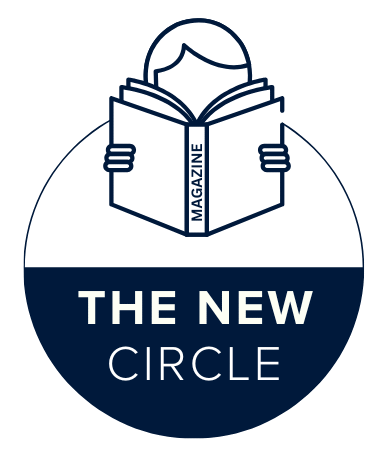Introduction:
Buying a home for the first time is one of the most exciting milestones in life. It represents stability, growth, and an investment in the future. At the same time, it can be overwhelming. With property prices, mortgage options, inspections, and closing processes to navigate, first-time buyers often encounter challenges they didn’t anticipate. In fact, even the most prepared buyers can fall into common traps that may affect their financial health and long-term satisfaction with their purchase. Understanding these mistakes and how to avoid them can save time, money, and stress while ensuring a smoother journey to homeownership.
The True Costs of Buying a Home:
“One of the most frequent mistakes among first-time buyers is assuming the purchase price of the property is the only significant cost. While the listing price may capture attention, the actual expenses extend far beyond it. Closing costs, property taxes, homeowners’ insurance, mortgage insurance, and ongoing maintenance can quickly add up. Many new homeowners also forget to budget for utilities, repairs, and potential homeowners’ association fees, which can significantly affect monthly expenses. By not accounting for these additional costs, buyers risk stretching their finances too thin and experiencing financial strain shortly after moving in. Avoiding this mistake starts with creating a realistic budget that includes both the upfront and long-term expenses of homeownership”. Says Steve Nicastro, Managing Editor, cleveroffers
Failing to Secure Mortgage Pre-Approval Early:
“A common error is house hunting before securing mortgage pre-approval. Pre-approval provides clarity about how much a buyer can afford and signals to sellers that the buyer is serious and financially prepared. Without it, first-time buyers may waste valuable time looking at homes outside their price range or risk losing their dream property to another buyer with financing already in place. Additionally, pre-approval can reveal potential issues in a buyer’s credit history that need attention before making an offer. Securing this step early creates confidence and ensures smoother negotiations when the right home comes along”. Says Loai Al, CEO, Provident Estate
Importance of Credit Health:
“Credit scores play a central role in determining mortgage eligibility and interest rates. A strong credit score can lead to better loan terms, while a poor score can make financing more difficult or costly. Many first-time buyers underestimate the influence of credit or fail to review their credit reports for errors and areas of improvement. High credit card balances, late payments, or unnecessary new credit applications can all work against them during the mortgage approval process. Taking the time to strengthen credit before applying for a loan can open doors to lower monthly payments and substantial long-term savings. Avoiding impulsive financial moves during the buying process also helps protect creditworthiness until the transaction is complete”. Says Hanif Sama, Co-Founder & COO, SuperHost Vacation Homes Rental
Letting Emotions Drive the Purchase:
“Buying a first home is emotional, and it’s easy for excitement to cloud judgment. Some buyers become attached to a property without carefully considering whether it meets their practical needs or long-term goals. Others may get caught up in bidding wars and spend more than they can comfortably afford. While it is natural to feel enthusiastic, making such a significant investment requires objectivity. A home should align with financial realities, location preferences, and future lifestyle plans. Approaching the process with a balanced mindset and setting clear boundaries helps prevent costly mistakes fueled by emotion rather than logic”. Says Rob Greyber, CEO, Vacasa
Overlooking the Importance of Location:
“It is often said that location is the most critical factor in real estate, and this holds especially true for first-time buyers. A home may seem perfect in terms of price and layout, but if it is in an area with limited amenities, poor schools, long commutes, or declining property values, the long-term consequences can be disappointing. Some buyers compromise on location to save money upfront, only to regret it later when daily routines or resale potential become issues. Thoroughly researching neighborhoods, visiting at different times of day, and considering future developments can help ensure the chosen location supports both present and future needs”. Says Hassan Morcel, CEO & Founder, Keys Please Holiday Homes Dubai
Skipping Home Inspections:
“In the excitement of finding the right property, first-time buyers may be tempted to skip or rush through the inspection process, especially in competitive markets. However, inspections provide critical insights into the condition of the home, uncovering potential problems such as structural issues, electrical concerns, or hidden water damage. Without a proper inspection, buyers risk unexpected repair costs that can quickly escalate after closing. Even if the market feels competitive, investing in a professional inspection offers peace of mind and ensures buyers are fully aware of what they are purchasing. Negotiating repairs or price adjustments based on inspection findings can also protect long-term financial well-being”. Says Marcus Rader, CEO & Co-Founder, Hostaway
Overextending Financially:
“Many first-time buyers stretch their budgets to the limit, assuming they can manage higher monthly payments as long as they qualify for the loan. However, life often brings unexpected expenses such as medical bills, job changes, or major home repairs. Overextending financially leaves little room for savings or emergencies, creating stress and instability. A safer approach is to buy below the maximum approved mortgage amount, leaving flexibility for unforeseen circumstances. Building a financial cushion not only makes homeownership more sustainable but also ensures that owning a home remains a rewarding experience rather than a constant burden”. Says Julian Castelli, CEO & Founder, VacationRoost
Long-Term Goals:
“Buying a home is not only about meeting immediate needs but also aligning with plans. Some first-time buyers choose properties based solely on their current lifestyle without considering whether the home will suit them in five or ten years. For instance, a small starter home may feel perfect now, but could quickly become inadequate if family size increases or remote work demands more space. Conversely, overbuying for future possibilities may strain finances unnecessarily. Clarifying long-term goals and assessing how a property fits into that vision is essential for making a wise investment that continues to serve the owner well over time”. Says Hassan Morcel, CEO & Founder, Dubai Short Term Rentals
Overlooking Professional Guidance:
Some buyers attempt to navigate the entire process alone, assuming that online research provides enough knowledge. While information is more accessible than ever, buying a home remains a complex process involving contracts, negotiations, legal considerations, and market dynamics. Without professional guidance, first-time buyers may overlook critical details or fail to negotiate favorable terms. Working with experienced professionals can simplify the journey, prevent costly mistakes, and ensure all aspects of the transaction are handled correctly. Choosing the right advisors is not about relinquishing control but rather about making informed decisions with expert support.
Conclusion:
Purchasing a first home is a major accomplishment, but it requires careful planning, patience, and awareness of common pitfalls. From underestimating costs to neglecting inspections and overextending financially, the mistakes first-time buyers often make can lead to significant challenges. Fortunately, each of these mistakes can be avoided with preparation, research, and the right guidance. By approaching the process with clarity and foresight, first-time buyers can transform what might otherwise be a stressful experience into a rewarding step toward financial security and personal fulfillment. A home is not just a purchase—it is an investment in a future lifestyle, and making thoughtful decisions today lays the foundation for long-term happiness and success.
READ ALSO: Love Where You Live: Home Improvement Projects That Make It Feel Brand New

